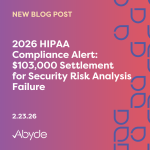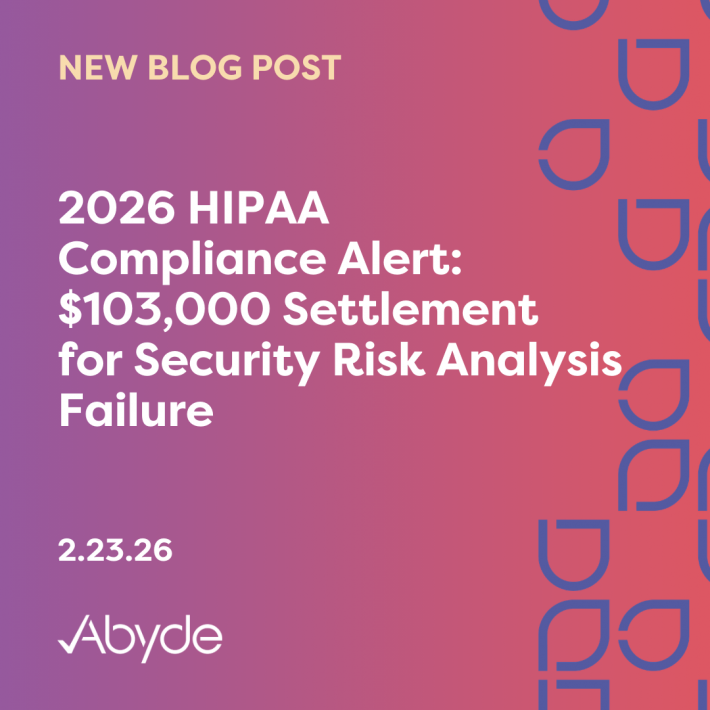April 25, 2023
HIPAA (Health Insurance Portability and Accountability Act) is a set of regulatory standards introduced in 1996 to protect sensitive patient health information from being disclosed without consent. HIPAA compliance is following these standards to ensure that a patient’s personal health information (PHI) is protected and kept confidential.
HIPAA regulations apply to various healthcare organizations, including doctors, hospitals, clinics, health insurers, and other covered entities. HIPAA compliance is not optional – it is a legal requirement for these entities to safeguard patients’ PHI, and failure to comply can result in severe penalties and fines.
HIPAA regulations provide specific guidelines for handling patients’ PHI, including how it can be stored, transmitted, and accessed. Some of the critical requirements for HIPAA compliance include the following:
- Privacy Rule: The HIPAA Privacy Rule outlines how covered entities should handle and protect PHI. This rule requires covered entities to obtain written consent from patients before using or disclosing their PHI and to ensure that only authorized individuals can access the information.
- Security Rule: The HIPAA Security Rule outlines the technical and physical safeguards covered entities must put in place to protect electronic PHI (ePHI) from unauthorized access, use, or disclosure. This rule requires covered entities to conduct regular risk assessments to identify and address potential vulnerabilities in their systems and to implement a range of security measures to protect ePHI.
- Breach Notification Rule: The HIPAA Rule requires covered entities to notify patients and the Department of Health and Human Services (HHS) in case of a breach of unsecured PHI. This includes any unauthorized access, use, or disclosure of PHI that compromises its confidentiality or privacy.
- Omnibus Rule: The HIPAA Omnibus Rule was introduced in 2013 to strengthen and clarify existing HIPAA regulations. This rule expanded the definition of PHI to include more types of information, required covered entities to enter into business associate agreements with third-party vendors that handle PHI, and increased penalties for non-compliance.
Ensuring HIPAA compliance is essential for healthcare organizations to protect their patient’s PHI and avoid costly fines and legal repercussions. Covered entities must implement HIPAA-compliant policies and procedures, conduct regular risk assessments, and train employees on HIPAA regulations to ensure that PHI is always protected.
Here are some common questions about HIPAA compliance:
• Who must comply with HIPAA regulations?
HIPAA regulations apply to covered entities, which include healthcare providers, health plans, and healthcare clearinghouses. Therefore, business associates with PHI access must also comply with HIPAA regulations on behalf of covered entities.
• What is PHI?
PHI stands for Personal Health Information and includes any information that can be used to identify an individual and relates to their health status or healthcare services. This includes medical records, billing information, and other identifying information.
• What are the penalties for non-compliance with HIPAA regulations?
The penalties for non-compliance with HIPAA regulations can be severe, ranging from fines of up to $50,000 per violation to criminal charges and imprisonment in extreme cases. Additionally, non-compliance can damage a healthcare organization’s reputation and erode patient trust.
• What steps can healthcare organizations take to ensure HIPAA compliance?
To ensure HIPAA compliance, healthcare organizations can take several steps, including conducting regular risk assessments, implementing security measures to protect ePHI, training employees on HIPAA regulations, and maintaining documentation of compliance efforts.
• What is the process for reporting a HIPAA violation?
If a healthcare organization discovers a potential HIPAA violation, it must investigate the incident and report it to the Department of Health and Human Services (HHS)
Here are the common HIPAA violation-related trends:
- Roughly 95% of the US population had their medical information disclosed between 2009 and 2021.
- Every employee in a healthcare organization has access to nearly 20% of files.
- 88% of hackers that attack healthcare entities do so for financial reasons.
- 95% of all identity theft incidents come from stolen healthcare records. Such information is worth about 50 times more than credit card information.
- Around 75% of surveyed healthcare services stated that their cybersecurity infrastructure is mainly unprepared for cyber threats and confirmed that their patient privacy and health data could be at risk.
Please visit the OCR Website for more information here.
There is a Solution
Not to be our biggest fans, but Abyde for HIPAA and OSHA Compliance is so revolutionary that we can’t help it.
There’s no software like it, and we feel our obligation as the industry leader is to keep setting the trend. That’s why we’re constantly implementing new features that make our software uniquely better.
https://www.youtube.com/embed/qCeXt6gw7lI?feature=oembedAbyde Compliance Software
- FROM SOFTWARE TO POLICIES, TRAINING MADE EASY – Our employee training is fun and engaging because nothing is exciting about staring at a computer and learning about policies and laws for hours. If you haven’t noticed yet, easy is a pattern with us; our training is no exception. The training portal is self-guided, so your staff can complete it when and where you prefer. And don’t worry about keeping track of who has completed their assigned training or when the next one is due – our automated notifications will take care of that for you.
- CUSTOM DYNAMIC GENERATION – There are a lot of details to navigate policies, but we’ve got you covered. Not sure if state law applies to you? We’ve incorporated state specifics into each approach. Couple that with your company profile and SRA, and you get the perfect storm of dynamically generated policies.
- BUSINESS ASSOCIATE PORTAL – No longer will you need to download, print, sign, scan, and email agreements to your Business Associates (phew – that’s a lot of steps!). With our Business Associate Portal, you can manage the contracts without leaving your Abyde account. We will even throw in some reminders for when your agreements are about to expire – talk about a cherry on top!
In Summary
HIPAA (Health Insurance Portability and Accountability Act) is a critical regulatory body that oversees healthcare practices in the United States. Compliance with HIPAA regulations is essential for healthcare practices, as violations can result in hefty fines and legal liabilities. Therefore, it is more beneficial for healthcare practices to use HIPAA compliance software to ensure they follow these regulations correctly.
A HIPAA compliance software like Abyde can help healthcare practices easily manage and track compliance requirements, streamline processes, and reduce the risk of errors and omissions that can lead to non-compliance. By automating risk assessments, employee training, and documentation tasks, healthcare practices can ensure they fully comply with HIPAA regulations and avoid potential fines and violations.
Moreover, HIPAA compliance software can also provide healthcare practices with tools to protect patient’s health information, such as secure messaging, access control, and encryption. These features can help to safeguard sensitive patient data and prevent breaches that can lead to HIPAA violations.
Overall, HIPAA compliance software can provide healthcare practices with peace of mind, knowing they are doing everything possible to protect themselves and their patients from regulatory violations and the associated consequences.
To book a demo with one of our Abyde specialists, click here or call us at (800) 594-0883





